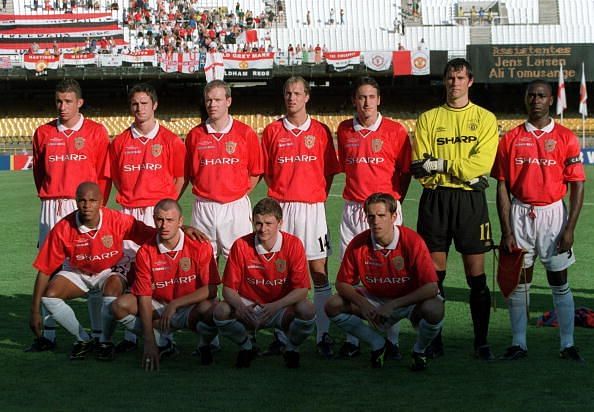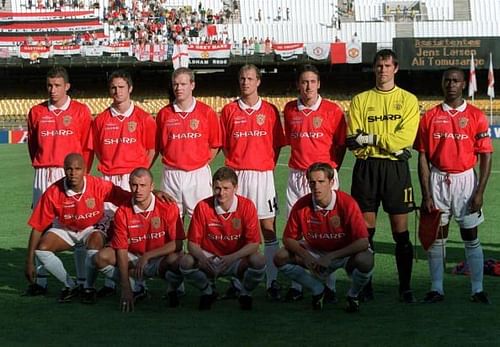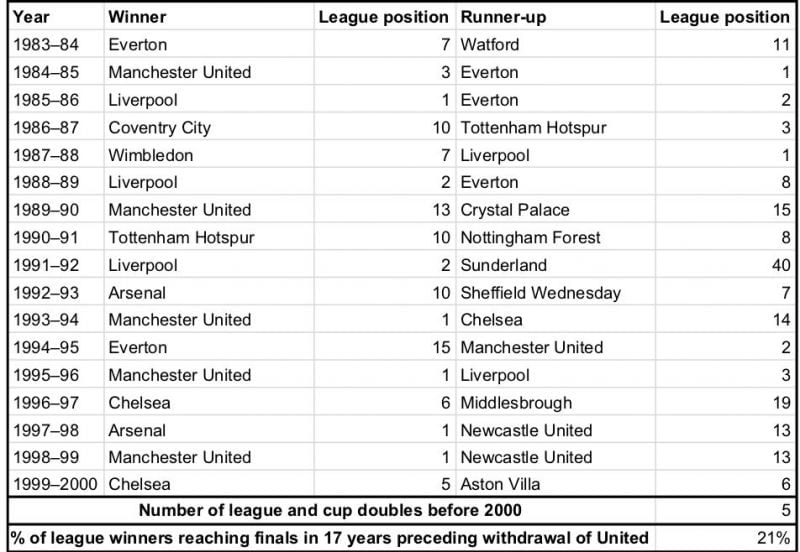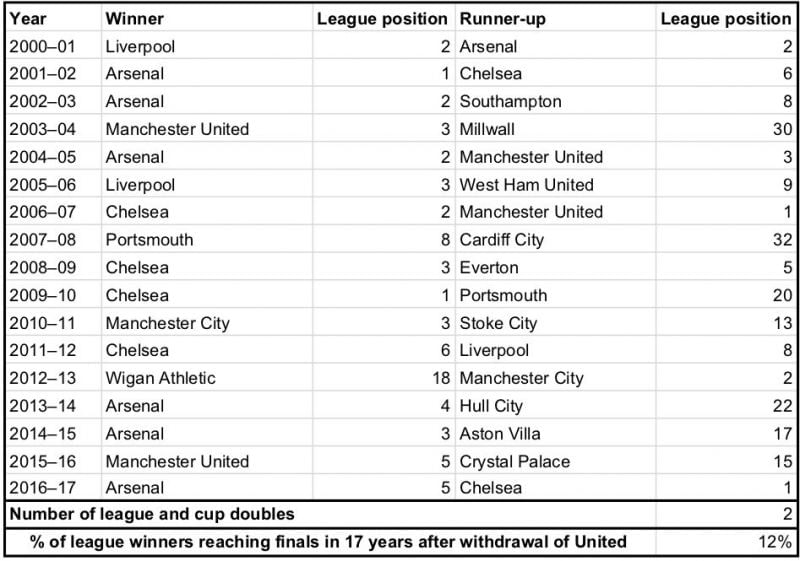
The tragedy of the FA Cup after Manchester United's withdrawal in 2000
Arsene Wenger has become synonymous with the FA Cup by winning the competition a record 7 times. Chelsea have their name etched in FA Cup folklore after winning the last FA Cup final at the Old Wembley in 2000 and the first final in the new Wembley in 2007.
However, one club that has had a very sizeable impact on the FA Cup legend is Manchester United. The club have won the FA Cup 12 times, second only to Arsenal’s 13 wins. The FA Cup formed one third of their fabled treble in 1999. Club legend, Ryan Giggs is also responsible for arguably the greatest goal scored in FA Cup history.
England’s most decorated football club has a lot of positive memories associated with the FA Cup. The unfortunate part is that they have also unknowingly played a part in diminishing the pride and legend of the world’s oldest football club competition. The FA Cup history of the last 40 years has a black mark in 2000, so much so that the modern history FA Cup can be divided into two marked periods. The black mark was caused by the English Football association themselves requesting Manchester United, who were the defending champions, to withdraw from the competition in order for the club to participate in the World Club Championship in South America in early 2000.

Before that fateful withdrawal in 2000, winning the cup was almost an equally prestigious domestic achievement as winning the league. After 2000, when the FA cup started becoming an afterthought to the UEFA Champions League and the English Premier League.

The data for the 17 years preceding Manchester United’s withdrawal in 2000, and the 17 years after that infamous event shows a pattern. The percentage of league winners reaching the finals has dropped from about 21% to 12%, while the number of League and FA Cup doubles has come down 5 in the 17 years and 4 in the 10 years preceding Manchester United’s withdrawal in 2000 to just 2 in the 17 years from 2001 to 2017. Winning the league or qualifying for the Champions league has taken hold. The glory of a trip to Wembley has taken a backseat.

Manchester United and Chelsea may be fighting to be crowned the FA Cup winners for 2017-18 on Saturday this week. But gone are the days when the FA Cup used to occupy an exalted position in the league season. The late great Sir Bobby Robson once said, "The FA Cup final is the greatest single match outside the World Cup final - and it's ours." Unfortunately, the UEFA Champions League and Premier League anthems resonate much more with the modern-day clubs, the players, and the fans.